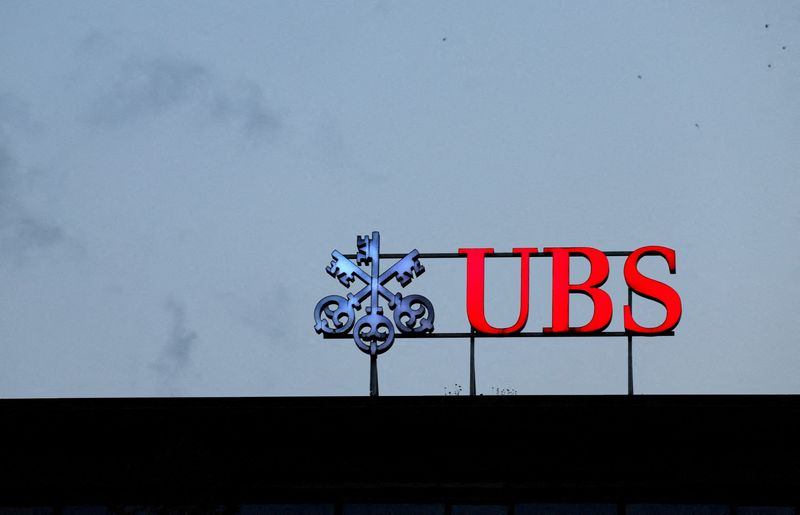ZURICH (Reuters) - The Swiss government will this month present proposals aimed at protecting the country against the risk of banks deemed "too big to fail" in response to UBS's emergence as the country's sole big lender with its 2023 takeover of Credit Suisse (SIX:CSGN).
Following are key points surrounding the plan:
WHAT DOES TOO BIG TO FAIL MEAN? The 2007-09 financial crisis showed the collapse of systemically important banks put entire economies at risk. The state could not abandon these banks, giving them implicit government guarantees, making them too big to fail (TBTF).
To avoid being hostages to future banking mismanagement, governments and regulators sought to beef up rules so that banks were obliged to strengthen their balance sheets.
HOW DID THE RULES WORK IN THE 2023 CRISIS? The collapse of Credit Suisse and several regional U.S. banks last year showed TBTF rules were insufficient.
Instead of Credit Suisse restructuring without state support - as was intended - the Swiss state had to orchestrate its absorption by UBS, backed by 168 billion Swiss francs ($187 billion) worth of liquidity from the central bank, the Swiss National Bank (SNB).
The Swiss TBTF rules are reviewed every two years, but the latest update was put off by a year following the demise of Credit Suisse. Swiss financial market watchdog FINMA, the SNB, a panel of experts and the Financial Stability Board (FSB) have also suggested improvements.
Discussions centre on these points:
CAPITAL
A bigger capital buffer would have given Credit Suisse and the Swiss government more time to find a solution and made it easier to break up and wind down parts of the bank.
Finance experts have pitched equity ratios of 20% or more for UBS. At the end of 2023, its ratio stood at 4.7%. The Swiss lower house of parliament last year backed making systemically relevant banks have unweighted equity ratios of at least 15 percent. UBS rejects this, arguing it would make products like mortgages much more expensive and hurt the economy.
LIQUIDITY Last year Credit Suisse suffered the first mass digital bank run as confidence in the lender collapsed. In March alone, customers withdrew tens of billions of dollars.
The SNB's emergency liquidity assistance (ELA) intended for such cases was not enough to stem the outflows. In addition, Credit Suisse had not prepared all of the relevant collateral for transfer to central banks, or it was already tied up in other transactions.
This is now due to change.
The central bank is working to make it easier for banks to access emergency liquidity. As part of that effort it is working with lenders to expand the inventory of assets they can pledge in return for liquidity, sources say. The SNB has signalled that, in addition to mortgages, it will also accept a broader pool of commercial loans, as well as so-called Lombard loans as collateral.
STATE LIQUIDITY SUPPORT Even before the Credit Suisse crisis, the Swiss government was working on state liquidity protection, a so-called public liquidity backstop (PLB). This comes into play when a bank urgently needs liquid funds but cannot provide the SNB with enough collateral. In such cases, the state steps in and guarantees the central bank the loans will be repaid.
Versions of the PLB, which is meant to be used for the restructuring, sale or winding-up of a bank, are in international use.
In Switzerland, there is broad acceptance of allowing liquidity support in emergencies. How much UBS should pay for it remains contentious though. While the government has suggested it should cost UBS a few million francs a year, critics argue that such support should cost a hundred times as much.
MANAGEMENT
Another lesson from the Credit Suisse meltdown was that executives took excessive risks and were not held properly accountable for them. In view of this, the market watchdog FINMA is calling for the introduction of a so-called Senior Managers Regime based on the British model.

This aims to ensure that managerial responsibility for decisions can be clearly assigned.
($1 = 0.9006 Swiss francs)